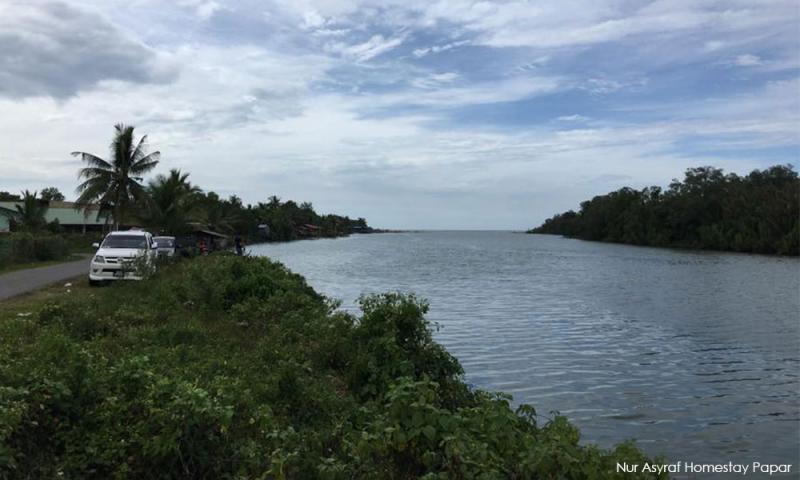LETTER | Don't overlook water scarcity crisis
LETTER | As the world faces the realities of climate change, another equally critical issue demands attention - water scarcity.
This crisis, coupled with the depletion of freshwater ecosystems, represents one of the greatest environmental challenges of the 21st century.
As populations grow and the demand for food, energy, and industrial water use increases, the pressure on our freshwater sources, particularly rivers, intensifies.
Our increasing exploitation of freshwater resources has led to a significant decline in freshwater biodiversity, along with the degradation of ecosystem services provided by rivers.
In conjunction with World Rivers Day, observed annually on the last Sunday of September, it’s time to reflect on the real impact of this crisis.
Stark consequences
The consequences of poor water management are stark. Mismanagement of water resources not only reduces access to clean water but also threatens rivers, which are vital to human life.
Rivers worldwide are being damaged by over-extraction, pollution, and ill-conceived infrastructure projects. Freshwater species have suffered the most, with studies revealing that freshwater biodiversity has declined more sharply than biodiversity in terrestrial or marine ecosystems.
This decline is alarming when we consider that freshwater ecosystems, which occupy less than 0.01 percent of the Earth’s surface, are home to 40 percent of all fish species.
Additionally, they support a third of all global vertebrate biodiversity, including amphibians, reptiles, and mammals. Yet, these ecosystems have seen a dramatic 70 percent decline in species populations from 1970 to 2020.
At the same time, human consumption of freshwater is growing, often with little concern for long-term consequences.
Rivers are frequently viewed as simple water sources or waste disposal systems. However, rivers are living ecosystems that provide critical functions for both nature and people.
Like any natural resource, rivers can be beneficial when managed responsibly, but they can also become dangerous when neglected. Rivers with reduced flow, choked with pollution, can become breeding grounds for diseases like cholera, hepatitis, and polio.
According to the World Health Organisation (WHO) and the United Nations Children’s Fund, waterborne diseases are responsible for 80 percent of illnesses and one-third of deaths in developing countries.
Immediate action
Poor hygiene, inadequate sanitation, and contaminated water supplies are the main culprits, and recently, there’s even been evidence that Covid-19 can spread through rivers contaminated with human waste.
The growing connection between water scarcity and climate change makes addressing this issue more urgent. As the climate crisis continues to disrupt weather patterns, rivers around the world are drying up or being polluted at an alarming rate. Immediate action is required to prevent this situation from worsening.
Global cooperation and local initiatives are essential to improving water management. Efforts like the “Rimba Project 2.0”, led by scientists at Universiti Malaya, aim to conserve forest ecosystems in the Rimba Ilmu Botanical Gardens. Forests play a crucial role in maintaining clean water supplies, and by preserving these ecosystems, we help protect freshwater sources.
Another initiative, “Water Warriors”, a community-driven project at Universiti Malaya, raises awareness about water conservation. Through campaigns, citizen science activities to monitor water quality and river clean-ups, the group empowers local communities to take charge of water sustainability efforts.
In recent years, there has been increased global concern about water-related risks, with warnings from influential figures that these risks pose significant threats to businesses and economies. But the real question is: are we prepared to take meaningful action to ensure the sustainability of our rivers and biodiversity?
The responsibility lies with us. We must recognise the vital role freshwater ecosystems play in maintaining the health of our planet and take collective responsibility for their preservation.
The next time you see a river, think of it not just as a water source, but as a lifeline. Our future depends on it.
Let’s take action now to protect our rivers and ensure they continue to sustain life on this planet.
Happy World Rivers Day!
The views expressed here are those of the author/contributor and do not necessarily represent the views of Malaysiakini.
RM12.50 / month
- Unlimited access to award-winning journalism
- Comment and share your opinions on all our articles
- Gift interesting stories to your friends
- Tax deductable
